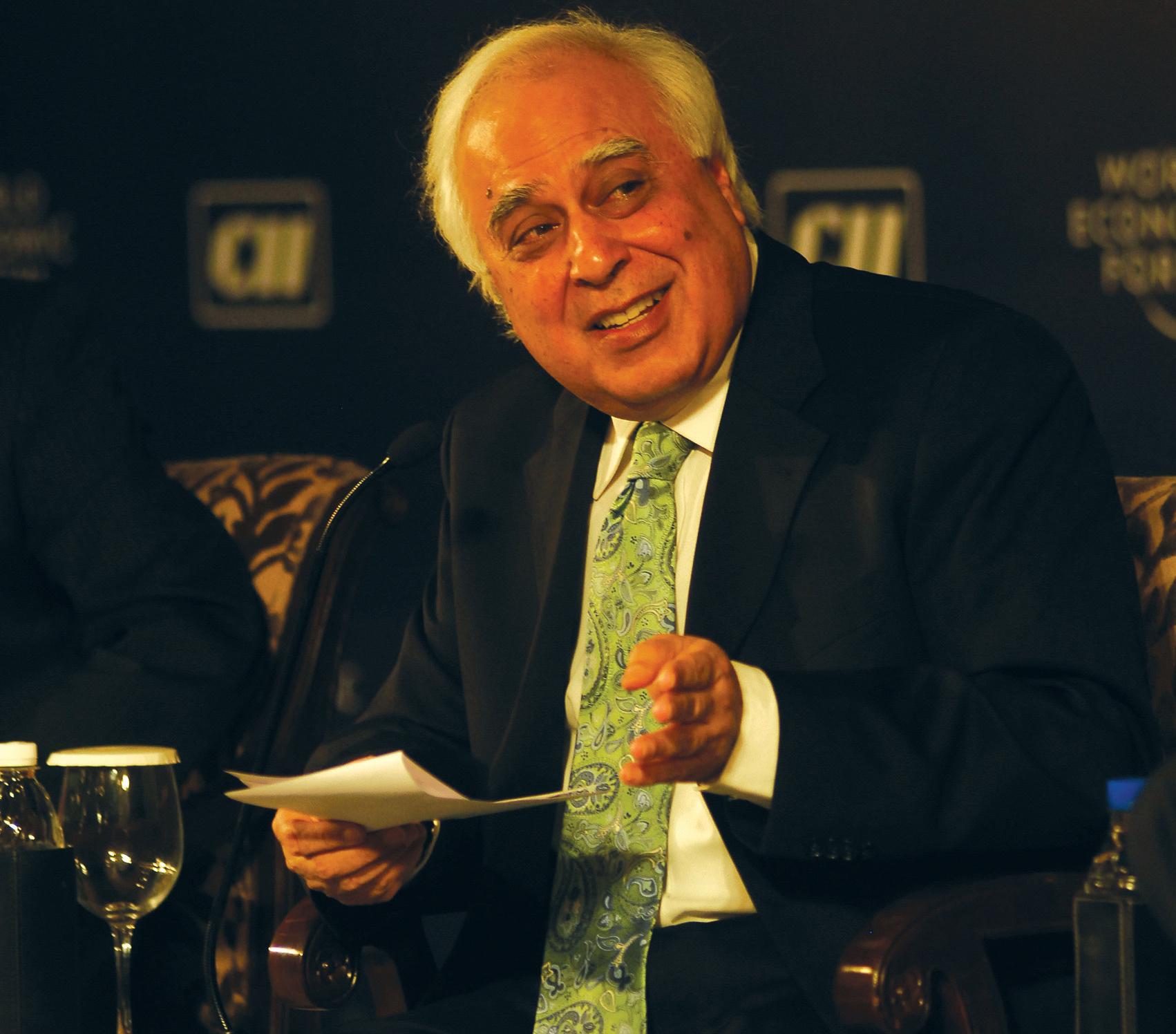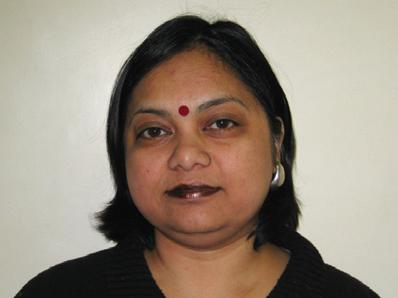
5 minute read
Insights into Education
from 2010-05 Melbourne
by Indian Link
A knowledge partnership is essential for the growth and development of nations, says Kapil Sibal
BY MADHUCHANDA DAS

Knowledge, in all its dimensions, be it literacy, skills application, research, innovation, entrepreneurship, product design or any other, is inarguably one of the key sources of growth in the global economy today. This offers both a challenge as well as a growing opportunity to developing nations to participate in knowledge-driven supply chains, as well as to promote socio-economic progress and alleviate poverty. New ideas need to blossom, be experimented with and multiply, if successful.
One of the world’s largest economies, India has made tremendous strides in its socio-economic growth. It is now poised to achieve an ever faster rate of growth. Hence, it is an opportune moment for the country to evolve as knowledge economy - one that creates, disseminates and utilises knowledge to encourage and extend its growth and progress. India’s future growth track, undoubtedly, depends on a united publicprivate-civil society partnership to formulate policies for a successful transition to such a knowledge-based economy. Education, as it is universally agreed, is one of the functional pillars and focus of such an economy. Therefore, broader reforms in the education sector are crucial.
Similar sentiments were echoed by the Human Resource Development Minister of India Mr Kapil Sibal, when he delivered the inaugural Australia India Institute lecture at the University of Melbourne Law School on April 8. The topic was: India in its transformation to a knowledge economy: the potential for partnerships with Australia Also present on the occasion were The Hon Alex Chernov, Chancellor of the University of Melbourne; Vice Chancellor of the University of Melbourne Professor Glyn Davis; the Indian High Commission in Australia Mrs Sujatha Singh; the Indian Consul General Ms Anita Nayar and Dr Kiran Martin, Founder and Director of ASHA.
The Hon Alex Chernov, in his welcome address, apprised the audience of the Australia India Institute’s structure and objectives. He elucidated that was established by the University of Melbourne in late 2008. “The establishment of this Institute,” he stated, “reflected the growing strategic alliance in education between the two countries and facilitates transfer of knowledge and understanding across their respective borders.”
The Chancellor described Mr Sibal as one of India’s most important public leaders who had been actively involved in promoting the Indian educational revolution and the development of closer ties between the two countries. He also mentioned that the Minister was an articulate speaker, a believer in the importance of science and technology in India’s national life and a poet whose works demonstrated his understanding of human nature and his great sense of humour.
Undoubtedly, Mr Sibal’s thought-provoking message was greatly enhanced by his oratorical prowess. “India is truly going through a transformation and the economic opportunities are enormous, but it’s equally true that if we’re not able to seize these economic opportunities the road ahead would be rather dangerous not just for India, but also for the rest of the world,” he stated. “There is a direct linkage between economic opportunity and knowledge partnership.” He added, “However, the twenty-first century models of development and the twenty-first century partnerships are going to be entirely different from those of the
Minister further stated that we could use emerging economic opportunities in the bilateral relationship between India and Australia and actually leverage them through knowledge partnership. Presenting an example to emphasise this pivotal linkage, the Minister dwelt upon the premise of building a twenty-first century city. He enumerated that it would be a complex and intricate process involving a whole new framework of thought processes, inclusive economic models, investment in knowledge, educational structures, issues of technology, sociology and the environment. In turn, this would offer the opportunity of investment connected with the opportunity of building an honest partnership to make good that investment.
Deliberating further on novel twenty-first century knowledge partnerships and development models, the Minister stated that the world had to progress towards taking advantage of the economies of scale and the enormous economic opportunities, but that could be achieved only through partnerships. Extending a humanistic appeal to this vision of partnership, he pointed towards a global community which forged partnerships for equitable social welfare. “We have for the last 20 centuries lived in denial because we’ve never bothered about he who has no voice and he who is not heard, and I don’t think that’s possible any more,” he reasoned. Makes sense, I thought, as the world today has shrunk to become the clichéd global village and we are more mutually dependent than ever before. So it’s no longer just about theirs or ours. Likewise Mr Sibal urged, “What I’m saying to you is that you have as much at stake in the success of the Indian story as India, because if 200 million people in India do not have access to education you can imagine the consequences of that globally….. the only way it can be addressed is through knowledge partnership.”
Sharing a conversation he had with an executive of an Australian company, he said that if that company collaborated with somebody in India in setting up an institution, it could get all the skilled people it wanted and also be able to deliver those skilled people at one third the cost. Talking of agriculture, one of the strongholds of the Indian economy, Mr Sibal said, “If we want to feed our world, we’ll need to do things differently….. Through biotechnology make sure that knowledge partnership - it can’t happen in an isolated fashion.”
The purpose of these examples, he said, was to illustrate that “we need to change the way we think in the 21st century, we need to realise that we’re in it together… we’re not divided by oceans anymore, because the transfer of knowledge has no territorial boundaries.”
Signing off on an optimistic and buoyant note the Minister aptly concluded that there was no choice but to partner, and partnership could only materialize through knowledge. In his words, “The economic opportunities are there, the knowledge economy is there but the linkage is missing; India and Australia provide that link between knowledge, partnership and economic opportunities.”
The Minister patiently responded to questions during the Q&A session that followed the talk. Replying to my question on whether India still needed more foreign education providers and universities when the educational system churned out close to 750,000 engineers, the Minister said the gross enrolment ratio, which was the number of young people going to college between the ages of 18 to 24, was 12.4 per cent in India; Australia’s stood at 33 per cent, and England at 43 per cent. Now if the gross enrolment ratio needed to go up from 12.4 to 30 per cent, we would need another 800 universities in 10 years time and another 40,000 colleges; and there was no way in the world that the government could provide that. This could only happen if institutions were allowed to come in and institutions to grow from within.
Responding to a question on social science partnerships, Mr Sibal said the world was moving towards solutions through science and technology, but he thought that the real solutions would come to the world through enlightenment in processes of dealing with each other. The most precious asset that any nation had was its heritage and culture, which is intangible.
The style, substance and simplicity of the Minister’s speech were as remarkable as his thoughtful, prudent and pragmatic perspectives on the evolving world realities. Rarely have I been so enthralled for the entire length of a lecture. Indeed, it was an afternoon well spent.










